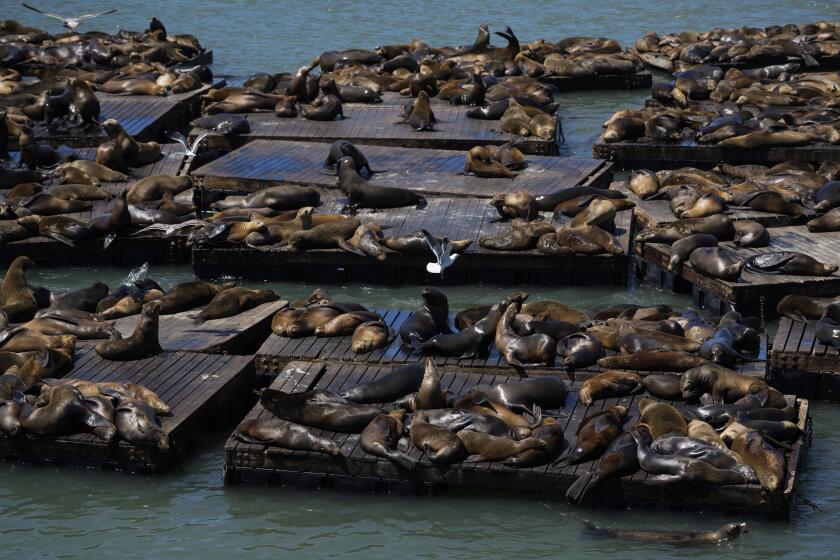Soviet Group Backs Cranes in U.S. Dam Case
In an unprecedented move, a Soviet environmental group has intervened in an wildlife dispute in Nebraska--on behalf of the sandhill crane.
The Soviet Assn. for Ecology and Peace on Friday wrote the U.S. Federal Energy Regulatory Commission urging it to take steps to protect the crane during re-licensing proceedings involving the Kingsley Dam on the Platte River in Nebraska.
Alexander Mischenko, deputy chairman of the private Soviet group, said that the Platte River habitat was a prime staging grounds for the cranes, 10% of which nest in Siberia following their spring migration from the United States.
His appeal to commission secretary Lois D. Cashell was made at the urging of the U.S. unit of Friends of the Earth and was believed to mark the first time that a Soviet environmental group had tried to influence U.S. regulatory proceedings.
“It is unprecedented for the Soviets to express environmental concern about U.S. environmental issues and regulatory activity,” said Brent Blackwelder, vice president for policy of Friends of the Earth. He said it was a sign of growing recognition that environmental issues often transcend political boundaries.
“It suggests to me that we are at an unprecedented moment of great international cooperation for environmental protection,” Blackwelder added.
American environmentalists have complained that the Kingsley Dam has held back too much water from the Platte River, threatening the habitat of 300 species of migratory birds, including six endangered species and the sandhill cranes.
Friends of the Earth said Friday that it has pledged assistance to the Soviet group in urging the Soviet government to reconsider plans for building a 2-million kilowatt dam in the Katun Valley, located in Central Asia near the Mongolian border, as well as attempts to prevent further degradation of the Volga River and to the Aral Sea in Soviet Central Asia.
The Soviet letter caught officials of the Nebraska Public Power District, which operates Kingsley Dam, by surprise. “It looks like this might make an interesting legal problem for somebody to straighten out,” spokesman Wayne Jacobsen said in a phone interview from Columbus, Neb.
Bill Thalken, re-licensing manager for the district, added: “I really don’t know how to react to what you’ve told me.” He said several other groups have intervened in re-licensing proceedings for the continued operation of the dam and that the district has been negotiating with several of the groups to resolve the controversy.
In his letter to the Federal Energy Regulatory Commission, Mischenko said: “Since these cranes travel the farthest on their northward journey, they are most dependent on the Platte River and its surrounding cornfields and wet meadows for feeding and storing energy necessary for the long migration and nesting season.
“The continuing loss of appropriate river habitat for these birds may diminish the flocks that reach the Soviet Union,” he said.
More to Read
Start your day right
Sign up for Essential California for news, features and recommendations from the L.A. Times and beyond in your inbox six days a week.
You may occasionally receive promotional content from the Los Angeles Times.






